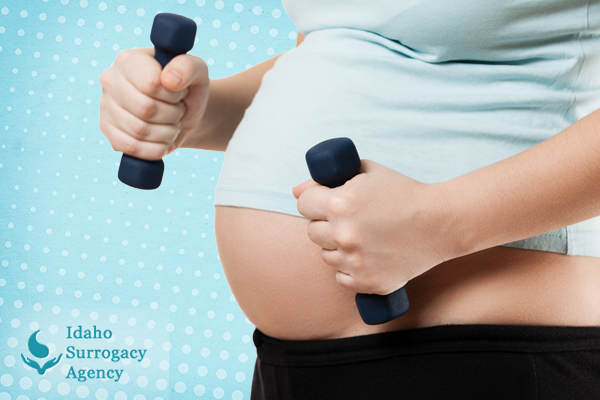Surrogate Mothers Fitness
Exercise is a scary word for many people, not just for surrogate mothers. However, exercise is very important for your body and can be fun, too!
Most people enter a fitness program accustomed to eating unhealthy foods. The faster the fitness enthusiast acclimates to a healthy diet, the faster the cravings for junk food will disappear. As a surrogate mother, you can have cravings; that is perfectly fine so long as you eat fatty foods in moderation.
Throughout your surrogacy journey, increasing blood circulation is the best way to carry essential nutrients to the cells in your body. It also helps eliminate waste and toxins built up in your system. As a surrogate, a good way to improve blood circulation is simply by stretching. Stretching helps reduce injury before exercising and increases muscle tone throughout your surrogacy experience.
Exercise burns a lot of calories, but not as much as some people wish it would. As a surrogate, the best exercises are walking and swimming.
Yoga is another great exercise, one you can do almost anywhere. As a surrogate mother, make sure to watch yoga videos that are easy yet fun to do.
If you want to get the full benefit out of your workouts, don’t forget to drink water and eat a balanced diet rich in protein, complex carbohydrates, and simple carbohydrates. As a surrogate mom, be sure to fill your caloric needs as well as your daily nutritional needs.
Staying fit before, during, and after surrogacy isn’t so hard when you know what you can do to get fit and enjoy yourself while doing so! Now that you know how fun fitness can be, why not start? Create an exercise program that suits you and soon you’ll be looking and feeling better.




